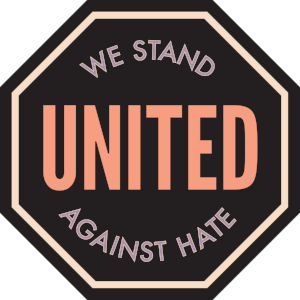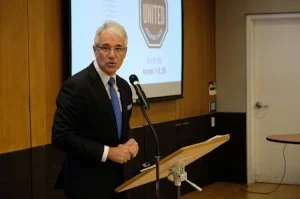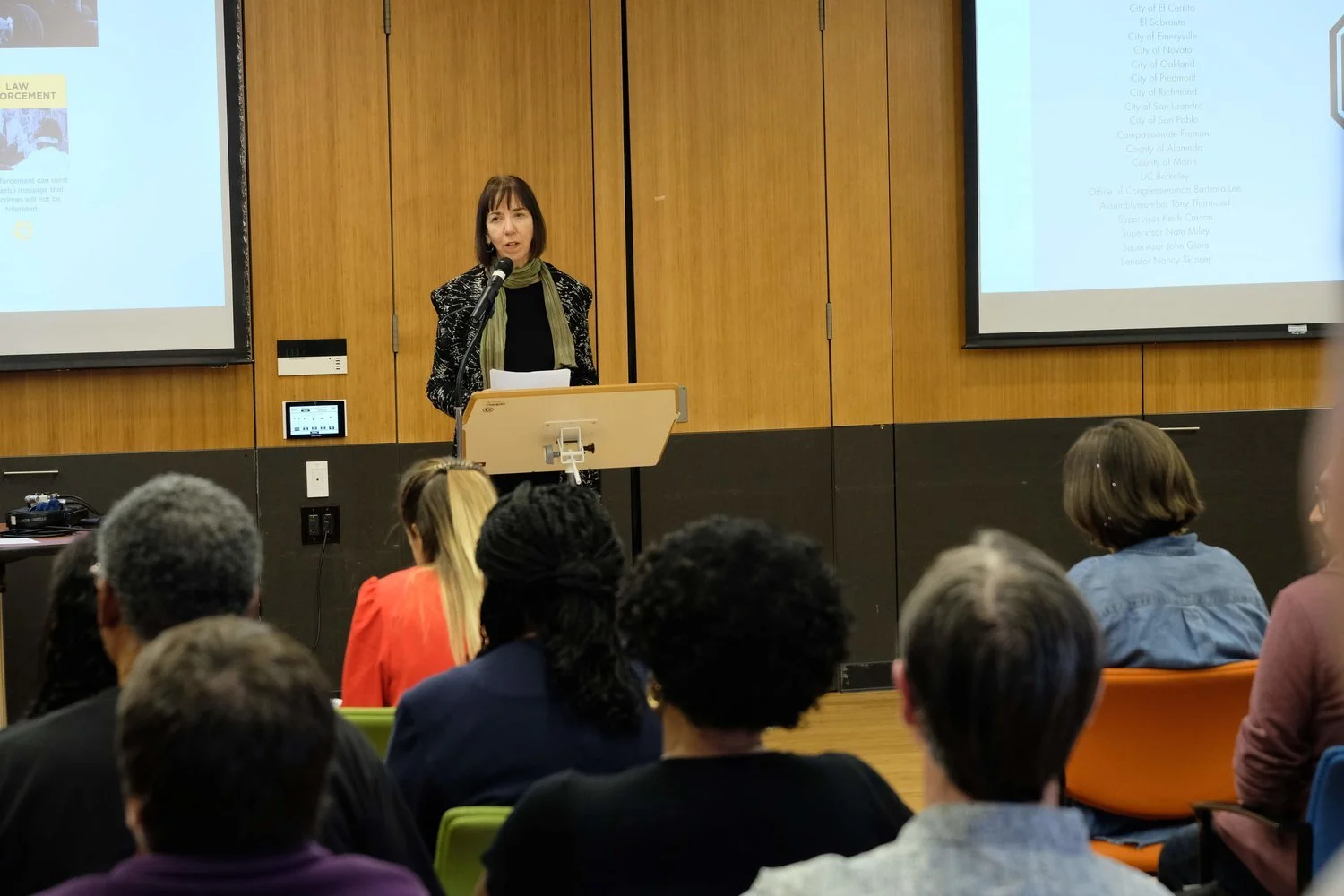Community Leaders Rally Against Hate, Call For Community Action
On September 26, a diverse group of elected leaders and community members from a half dozen cities across the Bay Area gathered in Berkeley to launch United Against Hate Week, a campaign to stop the hate that threatens the safety and civility of our communities.
From November 11-18, 2018, leaders will call for and support civic actions by local residents to oppose the rising tide of hate. It was inspired by the region’s "Stand United Against Hate" Poster campaign in the aftermath of last year’s violent rallies in Charlottesville, Virginia.
“Hateful rhetoric is abundant throughout our community,” said Jesse Arreguín, mayor of the City of Berkeley. After Charlottesville, “my office felt something needed to be done, something positive to bring the community together...against the hate and the divisiveness and bigotry.”
Emeryville Mayor John J. Bauters recalled experiencing hate crimes as a gay teenager growing up in the Midwest. While individuals may think they can’t make a difference, he said it’s vital that they become involved — which can be as simple as getting to know someone with a different background or listening to someone with a different point of view.
“Remaining silent is not an option,” he said. “It’s not enough to just say enough is enough; we have to take an action step.”
A response to hate, a movement to empower
United Against Hate Week and the posters that inspired it are a direct response to this sharp rise in expressions of hate, from racist graffiti to violence in our communities.
“Behavior that was unacceptable, the ugliness in many of our communities today, has become acceptable behavior,” said George Gascón, San Francisco’s District Attorney, who noted that even schoolchildren are being targeted. “If we believe this cannot happen in our nation, you are sadly mistaken. Germany in 1930s was one of the most sophisticated nations in the world economically, educationally, socially and they fell in a way that would have been unthinkable ten years prior.”
That concern for ensuring community safety in the face of hate crimes was echoed in the support expressed by leaders of the law enforcement community.
“Law enforcement agencies will do all we can to prevent hate crimes, prevent violence and we will stand with hate crime victims,” said Adam McGill, Chief of Police for the City of Novato.
Providing tools for the community
The event also unveiled “STOP HATE Action Kits” — resources and guides for schools, communities, law enforcement, and campus groups. The kits, created by Not In Our Town in partnership with the Lawyers’ Committee for Civil Rights, are available online at stophateaction.org.
“For 20 years we have been documenting and telling the story of people standing up to hate around the country, and for the most part, we didn’t focus on our own Bay Area,” said Patrice O'Neill, a leader of Not In Our Town, the Oakland-based facilitating organization supporting UAH Week. “But it is ridiculous to think anyone is immune.”
Perhaps the most powerful message was delivered by the family of Will Sims, a 26 year old African American musician who was severely beaten and then shot to death outside an El Sobrante bar on November 12, 2016. The family’s devastation was compounded when the district attorney sought to additionally charge the suspected killers with hate crimes, but the grand jury declined to do so.
Will’s parent’s Renee and Bill Sims recounted the tragedy and shared a poem they wrote as a reflection on his life and loss. They also spoke about the power of the community to heal when so many people stepped up to support them.
“Going through the whole ordeal, losing our son, taught us another lesson, and that is the lesson as to us being one community, one people, one race,” said Bill Sims. “We all share the same DNA with a few variations in our genes.”
The first year goal for UAH is ambitious — to get 25 of the Bay Area’s 100 communities to participate in UAH Week.
“But I want more,” said UAH co-chair Jacquelyn McCormick, who challenged attendees to take steps in advance of the November week of action. What’s most important is that everyone do something, she said: “Nothing is too small, the stakes are too high.”
Read More




